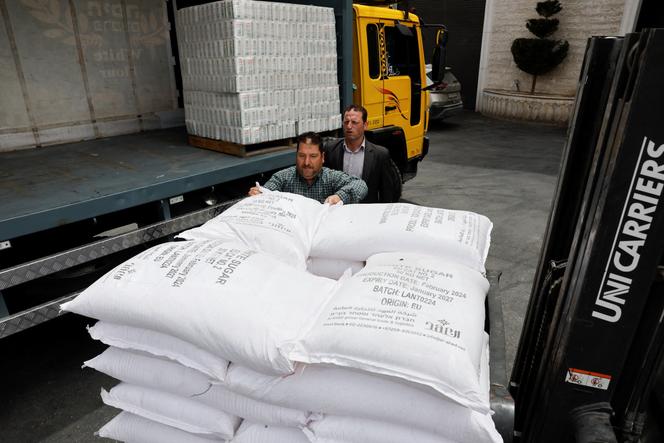


On Thursday, June 6, 30 trucks transporting United Nations humanitarian aid to Gaza were attacked shortly after crossing the Israeli border at Kerem Shalom. "Armed men shot at the wheels to stop them and wounded several drivers," said Nahed Shuheibar, the trucks' owner. "They threw out the shipments of flour and tin cans to find contraband cigarettes hidden inside."
Shuheibar is a well-established transporter in Gaza. He has worked for UNRWA, the main UN agency in the enclave, for several decades. These cigarettes, which fetch a high price in Gaza, had been hidden in his trucks from Egypt, without his knowledge, he claimed. They were coveted by "mafia families" in Gaza, explained Shuheibar, who was contacted by telephone since the Israeli army forbids Le Monde and all foreign press to enter Gaza.
These types of incidents have increased since the Israeli army invaded the border town of Rafah on May 6, displacing a million people. Israel aims to dismantle the last Hamas battalions in the southern part of the enclave. The army is also destroying the few government structures that remain in the hands of the Palestinian movement.
On June 2, Shuheibar had to pay a courtesy visit to mafia clans from Rafah, who had stormed one of his convoys the day before. "These gangs demand that we pay for their 'protection.' They don't care if Gazan society falls apart, they only care about their money," he said.
Since the beginning of the war, Shuheibar has been transporting part of the United Nations aid from the borders with his fleet of 60 trucks, which comprise about a third of those still operating in Gaza. In Rafah, Gazan police escorted his convoys until February. Then, Israel began bombing these uniformed men, remnants of a governmental authority held by Hamas since 2007. Two senior UN sources confirmed that, after careful consideration, these policemen resumed escorting the convoys, in plainclothes and unmarked cars. As such, "Hamas escorted and secured all aid until Israel seized the Rafah crossing point," said the courier.
Those days are over. On May 6, Israel closed the main border crossing for food deliveries to the enclave at Rafah. It is partially redirecting these supply routes through its own borders, in a state of great disarray. The major new development is that it has authorized the resumption of the food trade between Israel, the West Bank and the Gaza Strip to any private importer willing to take the risk. Fewer than 100 trucks have been passing daily through the Israeli terminal at Kerem Shalom (to the south).
You have 66.22% of this article left to read. The rest is for subscribers only.
